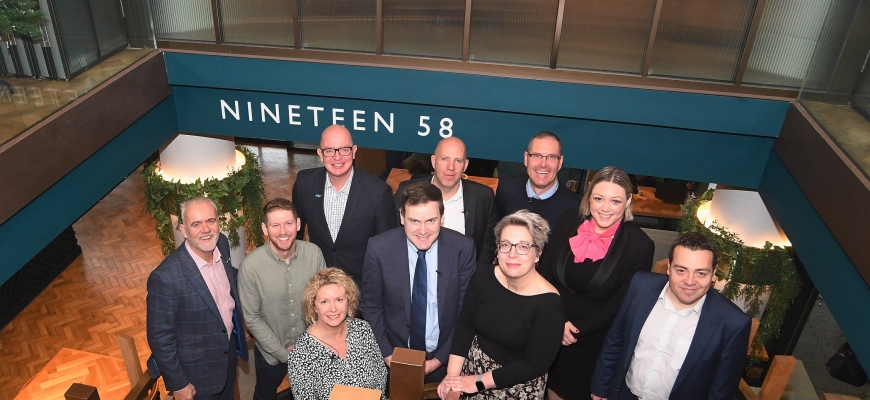
Coventry and Warwickshire’s hospitality businesses need to adopt an inclusive approach to their recruitment to try and solve the industry’s vacancy crisis, according to business leaders.
Coventry and Warwickshire Chamber of Commerce, in partnership with Destination Coventry and Coventry City Council, brought together a panel of experts at a major Recruitment and Skills Summit recently – including UKHospitality’s Skills Director Sandra Kelly – to discuss challenges around staffing, recruitment and skills, whilst offering practical advice.
It comes at a time when staff shortages are causing one in three UK-based hospitality businesses to close on one or more days a week, according to a recent UKHospitality survey, while the latest Office for National Statistics data shows there are around 152,000 hospitality vacancies in the UK.
Fleur Sexton, CEO and Founder of training specialist PET-Xi, was one of the panel experts and said that hospitality businesses need to overhaul their recruitment strategies to fill vacancies.
She said: “The workforce is out there, but hospitality is only going to solve this recruitment crisis when it gets to a point when nobody is left behind – whether that is single parents, over-50s, school leavers or refugees.
“The days of a small workforce working maximum weekly hours are now gone because people want flexibility, and in order for businesses to adapt to this shift, they need to have a larger workforce working less hours.
“We also need to embrace those on the edge of society – including ex-offenders or those with a particular condition. Just because someone has done wrong in the past, or has a disorder where they find certain activities difficult, it does not mean they would not be a good employee.
“We also have a Covid generation of young people who, through no fault of their own, missed out on two years of work experience due to lockdown, and our Coventry-based restaurant Metropolis is now playing a key role in helping a backlog of young people to learn practical skills on the job before entering the local labour market.”
Sandra Kelly, from UKHospitality, underlined the crucial role that the UK government has to play in rejuvenating the hospitality industry.
She added: “We can point to Covid and Brexit as being disruptive, but the truth is that the UK has never really had a strong talent pipeline from education – or other areas of society – feeding into the hospitality industry.
“The UK currently has around 8,000 qualifications for any sector, yet in countries such as Canada and the Netherlands there are up to 100, which is where we need to get to in order to ensure that the training we are providing to recruits is relevant to industry.
“Last September, the government also made the significant move of enabling prisoners to start studying an apprenticeship whilst they were serving their sentence – regardless of their employment status. This means that we can soon get to a stage where, when ex-offenders are released back into society, they are already skilled and equipped to contribute to a hospitality setting.
“We are also urging employers to reach out to their local colleges to bring through the next generation of talent, like we have seen in Manchester where 33 hotels are partnering with 33 schools. For example, the UK needs 100,000 chefs annually to meet demand, and collaborations such as this are going to be key.”
Corin Crane, chief executive at the Coventry and Warwickshire Chamber of Commerce, chaired the skills and recruitment summit, and he was also joined by Glen Smailes, Strategic Lead for Skills at Coventry City Council, and Shaun Hall from the West Midlands Combined Authority.
Corin commented: “Being unable to fill vacancies – let alone having candidates with the right skills – is a major hangover from Brexit and Covid, but the overarching advice to any business in this situation is to adopt a collaborative mindset by reaching out to organisations such as their local Chamber.
“That way we can signpost them in the right direction – whether that is for recruitment, or funding for training that is tailored to both prospective and existing workforces.
“It was interesting to hear that while youth unemployment is relatively low in Coventry, there is more of an issue with the over-50s, and changing some of the language in job adverts that lean more towards experience, leadership and dependability is likely to play an important role in attracting this age bracket back to the workplace.
“Coventry is a city recovering from the pandemic much quicker than the rest of the region, with figures from Destination Coventry showing that 8.2 million people visited the city in 2021, valuing the city’s visitor economy at £495 billion – so it is crucial that hospitality businesses address any issues they have, such as recruitment, to ensure they can fully capitalise on this.”
Paul Jones, Managing Director of Destination Coventry, which organised the Recruitment and Skills Summit, added: “We also need to change people’s perception of working in hospitality, and this is especially important for school leavers and their parents, as well as the over-50s.
“Those of us in the sector are acutely aware of the incredible opportunity and fulfilment that a career in our industry can bring, but that’s not widely appreciated.
“Here in the UK, we have a very different attitude towards working in hospitality, and we don’t afford it the same level of respect and credibility as other European nations such as France and Italy.
“Here at Destination Coventry, we want to address that, which is why we’re working with senior leaders and rising stars from businesses across the region, to share their success stories and change public’s sentiment towards working in the sector. There’s still a way to go, but unless we start to address these challenges from all angles, the recruitment and skills crisis for tourism, leisure and hospitality businesses will not start to improve.”
Cllr Jim O’Boyle cabinet member for jobs, regeneration and climate change, said: “We want to continue to build on the recent significant growth in the city’s visitor numbers and we know that’s what the sector wants too. Addressing the recruitment challenges is essential for achieving this, which is why it’s good to know that everyone is working together to find solutions to enable the tourism and hospitality sector to thrive.”
Pictured: Speakers and contributors gather at the Recruitment & Skills Summit
